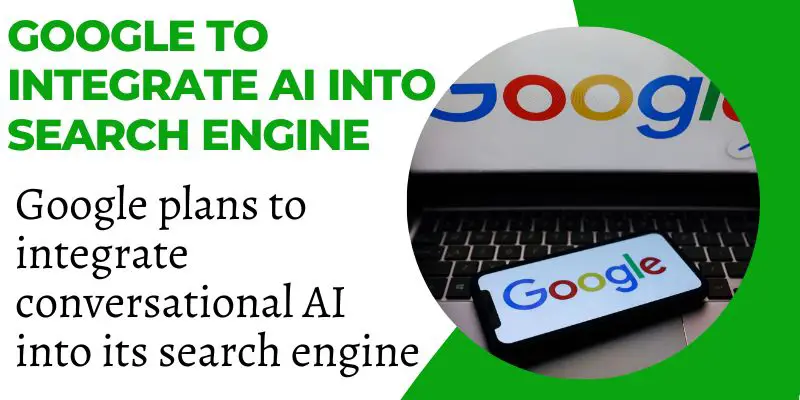During an interview, Google CEO Sundar Pichai disclosed that the tech giant intends to integrate conversational AI into its search engine as competition in the field intensifies.
Highlights:
In response to increased competition from AI chatbots such as ChatGPT, Google intends to integrate conversational AI technology into its search engine.
This move is significant and could potentially revolutionize the way users engage with search platforms.
Balancing the development of AI and cost management is a crucial aspect for Google, particularly as investors are pressuring the company to reduce spending.
During an interview with The Wall Street Journal, Sundar Pichai, the CEO of Google, revealed the company’s plans to integrate conversational artificial intelligence (AI) technology into its primary search engine.
This move comes in response to mounting competition from AI chatbots like ChatGPT, as well as other business pressures that Google is currently facing.
AI Integration: The Financial Implications

The competition to integrate AI into consumer products has intensified since OpenAI released its ChatGPT language model, backed by Microsoft. This has led to a race among technology companies to incorporate similar AI technology into their own products and services.
Microsoft has already integrated ChatGPT-like technology into its search engine, Bing, presenting a challenge to Google’s core business. Bing users can now engage in more extended conversations with the language model, leading to increased usage.
This presents a significant problem for Google, as search ads constitute its primary revenue stream, generating $162 billion in revenue last year. For every percentage point gained in the search market, Microsoft expects an additional $2 billion in revenue.
Despite the financial implications, Google has been cautious about adopting AI-powered chatbots due to concerns regarding their accuracy. However, the company’s CEO, Sundar Pichai, recently revealed that Google plans to integrate conversational AI technology into its search engine, as competition in the field intensifies.
Pichai also disclosed that Google will continue to refine its standalone Bard chatbot with new AI models and is still searching for the right market. This is a significant move for Google, as integrating conversational AI into search engines marks a significant shift in how users interact with search platforms.
As Google works to balance AI development and cost management, the pressure from investors to cut spending adds an additional layer of complexity. Nevertheless, the potential benefits of integrating AI into consumer products and services are enormous, and technology companies are expected to continue investing heavily in this area.
Striking a Balance: Managing AI Development and Costs
Developing advanced AI technology requires a significant amount of computing power to process complex calculations needed for human-like conversations.
Google’s CEO, Sundar Pichai, has acknowledged that the company must strike a balance between allocating resources for AI development and managing costs effectively.
To address this issue, Google Brain and DeepMind, the primary AI units of the company, will work closely together to create large algorithms that are efficient and cost-effective.
Google aims to leverage its investment in AI models to expand its business, similar to Microsoft’s strategy. The company recently made its Pathways Language Model accessible to developers on its cloud-computing service.
Pichai believes that smaller AI models will become increasingly valuable in the future, allowing companies to develop their own algorithms or enable users to run them on personal devices.
In conclusion
By incorporating conversational AI into its search engine, Google has made a noteworthy shift in the industry. This move allows the company to keep up with Microsoft and maintain its position as a leader in the search market.
The introduction of conversational AI could have a significant impact on how users interact with search engines, which could reshape the landscape of SEO and digital marketing in the future.
Source: The Wall Street Journal
